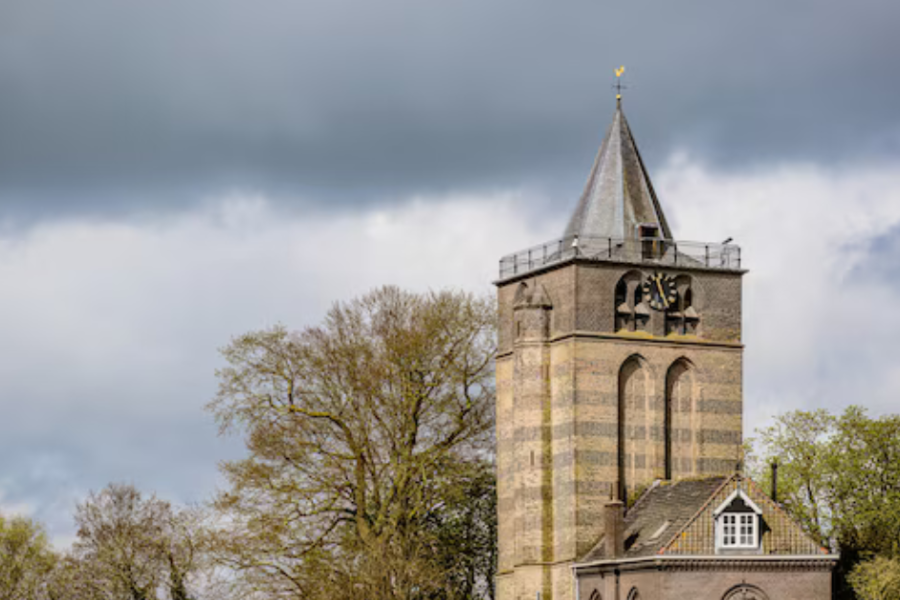Tilchurch is a fascinating tradition that has captured the interest of many across cultures and religions. While it may not be a mainstream practice, its growing popularity among historians, anthropologists, and individuals intrigued by niche religious customs makes it a noteworthy subject of exploration. This article delves into what tilchurch is, its origins, significance, and the cultural impact it holds.
What is Tilchurch?
Tilchurch refers to a unique tradition observed within certain religious communities, particularly in rural or isolated areas. It combines elements of worship, community gathering, and spiritual connection in ways that often diverge from more conventional religious practices. Unlike traditional churches or temples, tilchurch events tend to be more intimate and rooted in local customs and beliefs, often focused on smaller communities.
This grassroots approach to spirituality provides participants with a sense of belonging and personal connection to their faith.
The Origins of Tilchurch
The origins of tilchurch are somewhat elusive, as it lacks a unified doctrine or a central founding figure. The term “tilchurch” likely derives from regional dialects that denote a space for spiritual gathering unbound by specific religious affiliations.
Some sources suggest that tilchurch emerged from informal religious meetings, where individuals gathered in smaller, makeshift spaces to pray, discuss scriptures, and share spiritual experiences. This organic development reflects the adaptability of faith practices to meet the needs of local communities.
The Importance of Community in Tilchurch
At the heart of tilchurch is the emphasis on community. Unlike larger, more impersonal religious gatherings, tilchurch creates a close-knit environment where members actively participate in spiritual discussions. This intimacy fosters a sense of belonging and mutual support, allowing individuals to connect with one another and their faith in profound ways.
The shared experiences and personal connections formed during these gatherings are vital to the enduring appeal of tilchurch, making it a refuge for those seeking meaningful spiritual engagement.
The Role of Spiritual Leadership in Tilchurch
While tilchurch may not have formal clergy or priests like conventional religious institutions, it typically involves a form of spiritual leadership. A respected elder or knowledgeable community member often leads the sessions, providing insights into religious texts, spiritual teachings, or philosophical discussions.
These leaders, unlike traditional pastors or imams, tend to be more accessible and closely connected to their community, ensuring that the spiritual experience feels personalized. This approach helps demystify spiritual leadership, allowing participants to engage more freely in their faith journeys.
Tilchurch and Rural Traditions
Tilchurch is predominantly associated with rural or remote regions, where access to large religious institutions may be limited. In such environments, tilchurch serves as a means for individuals to maintain their spiritual lives without the necessity of traveling long distances.
Gatherings often take place in informal settings, such as homes, barns, or open fields, creating an atmosphere that is relaxed and less rigid than that found in conventional churches or mosques. This flexibility allows for a more adaptable and inclusive practice of faith, catering to the diverse needs of participants.
The Difference Between Tilchurch and Conventional Churches
Conventional churches often boast grand, formal architectures and hierarchical structures, while tilchurch offers a simpler, grassroots alternative. There are no towering cathedrals or elaborate rituals; instead, people come together in humble settings to connect with their spirituality.
This simplicity is a key element of tilchurch’s appeal, allowing participants to focus more on the spiritual message and personal growth rather than external trappings. The emphasis on authenticity and genuine connection sets tilchurch apart from traditional religious practices.
The Spiritual Significance of Tilchurch Gatherings
In tilchurch, the focus is not on rigid religious dogma but rather on personal spiritual growth and community bonding. The spiritual significance lies in the act of gathering itself—people come together to learn, share, and reflect on their beliefs. Each gathering serves as an opportunity for personal enlightenment, enriched by the collective wisdom of the group. This collaborative approach to spirituality fosters a deeper and more meaningful connection to one’s faith, often resulting in transformative experiences for participants.
How Tilchurch Reflects Local Culture
Tilchurch is intricately tied to local culture and traditions. Each gathering mirrors the customs, values, and histories of the community it serves. For instance, a tilchurch event in a farming village may incorporate agricultural symbols or practices into the spiritual teachings, enhancing the relevance of the experience to the daily lives of attendees.
This blend of spirituality and culture ensures that tilchurch remains a living, evolving practice that adapts to the needs of its participants, reinforcing the importance of community identity and heritage.
Challenges Facing Tilchurch Today
Despite its enduring appeal, tilchurch faces several challenges in the modern world. As urbanization continues to draw individuals away from rural areas, the close-knit, community-oriented nature of tilchurch becomes harder to sustain.
Additionally, the rise of digital media and online religious services offers alternatives that may be more convenient, especially for younger generations. The informal structure of tilchurch can also pose challenges, as it often lacks the resources and organizational support that larger religious institutions provide.
The Evolution of Tilchurch in Modern Times
Like many other traditions, tilchurch has evolved over time. In recent years, some communities have sought to modernize the practice by incorporating new forms of communication and technology.
For example, online tilchurch groups have emerged, allowing individuals to maintain the intimate, community-driven aspects of the tradition even when they are geographically distant. This adaptation has allowed tilchurch to remain relevant in a rapidly changing world, demonstrating its resilience and commitment to fostering spiritual connections.
The Future of Tilchurch
The future of tilchurch is uncertain yet promising. Its flexibility and focus on personal connections make it a resilient tradition capable of adapting to new challenges. As long as communities continue to value close spiritual ties and personalized worship, tilchurch will likely thrive, even as it evolves in form and practice.
The adaptability of tilchurch ensures that it can cater to the needs of future generations, providing a space for spiritual exploration and growth.
Why Tilchurch Appeals to Spiritual Seekers
For individuals feeling disconnected from mainstream religious institutions, tilchurch presents an appealing alternative. Its informal structure and emphasis on personal connections make it more accessible and less intimidating than traditional religious gatherings.
Many spiritual seekers are drawn to tilchurch for the opportunity to engage in a more intimate and meaningful form of worship. The sense of belonging and community fosters a supportive environment for exploring one’s spirituality.
How to Get Involved in a Tilchurch Community
If you’re interested in exploring tilchurch, the best way to get involved is by seeking out local gatherings or online groups focused on this tradition. Given its community-based nature, networking and inquiring within your community can help you find a group that aligns with your needs.
Once you locate a tilchurch community, you’ll likely discover a warm, welcoming space that fosters personal growth and spiritual connection. Participating in these gatherings can lead to enriching experiences and meaningful relationships.
Conclusion
Tilchurch is a unique tradition that continues to resonate with those who value community, simplicity, and personal spirituality. Despite facing modern challenges, its adaptability and evolution keep it relevant in today’s world.
Whether you are a spiritual seeker or simply curious about niche religious customs, tilchurch offers a refreshing and meaningful approach to faith. By embracing local cultures and fostering personal connections, tilchurch creates a spiritual landscape that is both inclusive and transformative.
FAQs
Is tilchurch associated with a specific religion?
No, tilchurch is not tied to any one religion. It is a flexible, community-oriented practice that can incorporate elements from various belief systems.
How often do tilchurch gatherings take place?
This varies by community. Some tilchurch groups meet weekly, while others gather less frequently, depending on the needs and availability of the members.
Can anyone join a tilchurch group?
Yes, tilchurch is generally open to anyone interested in participating. Its informal nature makes it accessible to people from all walks of life.
What happens during a tilchurch gathering?
Tilchurch gatherings typically involve discussions, spiritual readings, and personal reflections. The exact format depends on the community, but the focus is always on spiritual growth and community bonding.
How can tilchurch adapt to modern society?
Tilchurch is already evolving by incorporating online meetings and digital communication tools. These adaptations allow it to maintain its community-based focus even in a more disconnected world.
Stay ahead with exclusive insights and breaking news on thedgmnews.


